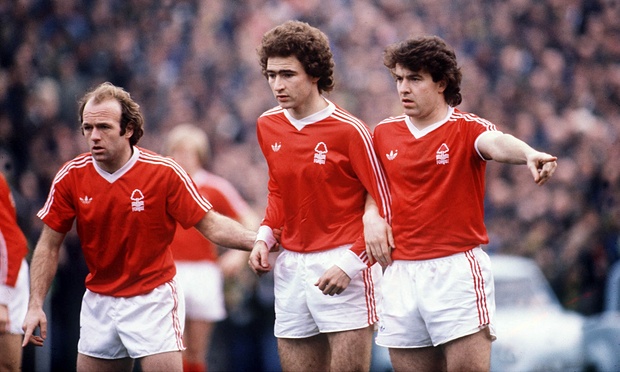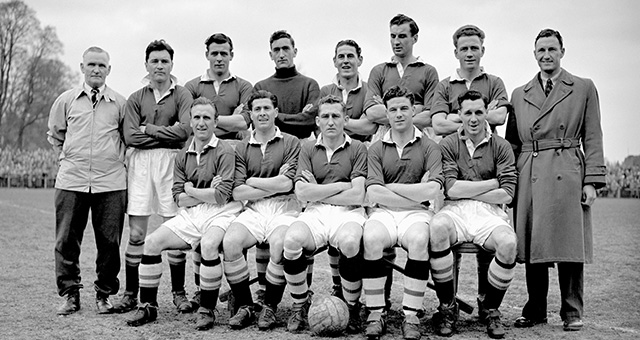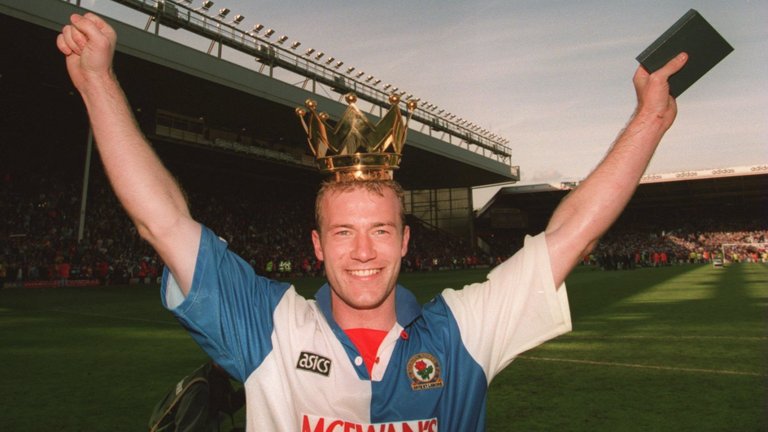The history of the smaller clubs winning the EPL

Leicester have made a flying start to their Premier League campaign and are currently second on the table. But can they defy the odds and win the PL title? If they do, they won’t be the first team to have done the seemingly impossible. In this article we take a look at three teams from the past, which were tipped for a mid-table finish at best, but still managed to win the league title.
Nottingham Forest F.C.
Imagine Bournemouth or Watford winning the Premier League this season. To think that a team just promoted into the highest rank of English football will win the title next season seems ludicrous, but that’s exactly what Forest did some 37 years ago.
Under the guidance of manager Brian Clough, Forest barely succeeded in getting promoted into the First Division in 1977. They finished third in the Second Division and Bolton and Blackpool could have overtaken them, had they earned just one more point.
By having trust in players like, Peter Shilton, Garry Birtles, Martin O’Neill, Kenny Burns and John McGovern, Clough managed to win the league with an incredible seven point margin over second-placed Liverpool.
This wasn’t just a lucky occurrence however; the same squad also won the League Cup that season, which made them one of the most successful surprise packages in British football history. Their success story is similar to the success stories you will hear from a lot of people from South Africa, who manage to make huge profits in the casinos at GamblingAfrica.com.

Nottingham Forest English Champions in 1977-1978
Chelsea FC
People are often heard saying that Chelsea had no history before Roman Abramovich bought the club in 2004. This statement is false, however, since before 2004, Chelsea had won 15 trophies in total. One trophy stands out more than the others, and that is the one from the magical 1954-1955 League triumph.
Coming into the 1954-1955 league season, Chelsea had been a club which was considered as mediocre at best. In the years after World War II, the London club had finished somewhere in the range from the 8th to the 20th position. And their prevailing characteristic was their inconsistency.
In the 1954-1955 league campaign, Wolverhampton Wanderers were the favorites for the title. And Chelsea’s early performances that season indicated that it was going to be a long and largely disappointing league run for them, as in fact was predicted by the bookmakers.
However, manager Ted Drake had different ideas and made some radical changes in the team. He introduced scouting reports ahead of matches and higher tempo training sessions with a lot of ball work. He also bought young, promising players from the lower leagues like Frank Blunstone, whose pace and skill played a major role in Chelsea’s title win.

Chelsea squad, champions in England in 1955
Blackburn Rovers
The last entry on this list is the only club to have actually won the English Premier League (EPL), since this name has only been given to the league after the clubs in the First Division decided to break away from the Football League, and take advantage of a lucrative television rights deal that would see them form, what we now know, as the EPL. In the first two years of the rebranding, Sir Alex Ferguson’s Red Devils won the title and Blackburn Rovers came 4th and 2nd respectively.
Based on those, rather respectable finishes, and on the popular notion that the Rovers benefited from having a cash laden owner, Blackburn’s achievement isn’t as remarkable as the previous two. But the fact that they are the only title winners other than United, Arsenal, City and Chelsea after the formation of the EPL, makes them worthy of an entry on this list. In addition to this, and contrary to popular notion, it must be said that the Rovers didn’t spend as heavily as people would make you believe.
In fact, Graeme Le Saux, Colin Hendry and Tim Sherwood were all bought relatively cheaply. Their entire defensive line was cheaper than the price Newcastle had paid for the not so impressive Darren Peacock. In addition, Leeds had spent much more money on just one player from their midfield than Blackburn had done on their starting four. And comparing them to Ferguson’s United would be like comparing today’s Manchester City with Everton or Southampton.
The most important thing to Rovers’ success wasn’t their cash rich owner (although that helped), but the organisation and desire instilled in the side, by managerial genius, Kenny Dalglish, and the productive striker partnership of Alan Shearer and Chris Sutton.

Alan Shearer in Blackburn Rovers, Premier League champions in 1995
Sources: wikipedia.org / nottinghamforest.co.uk























